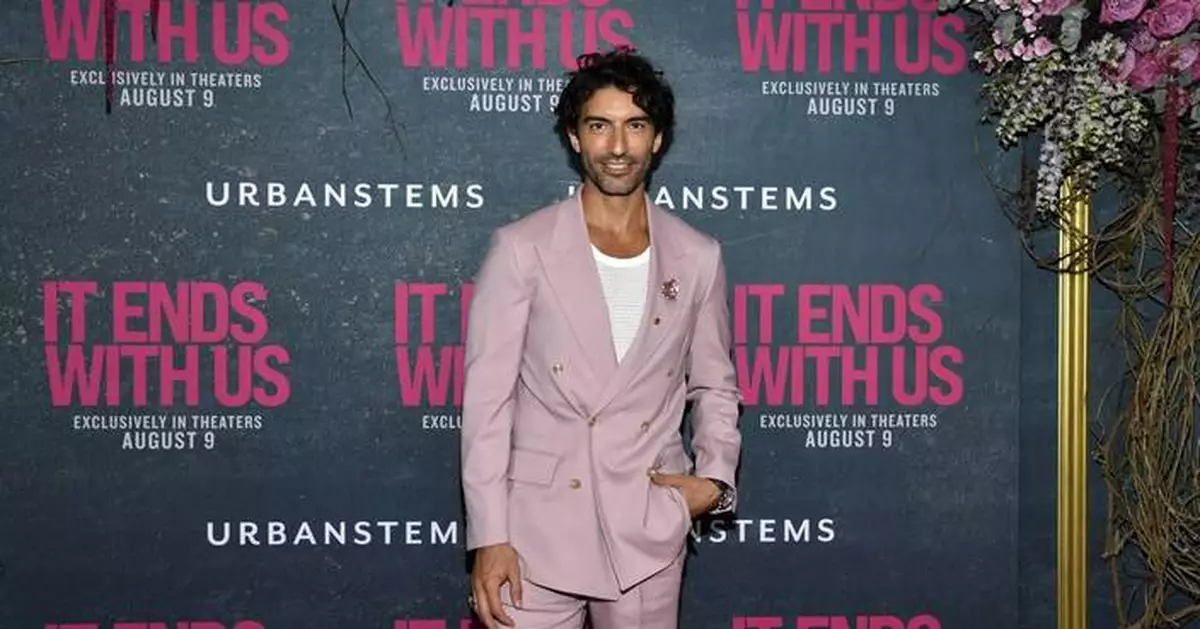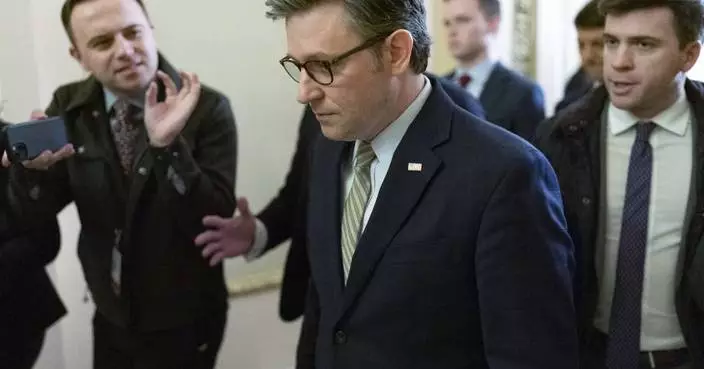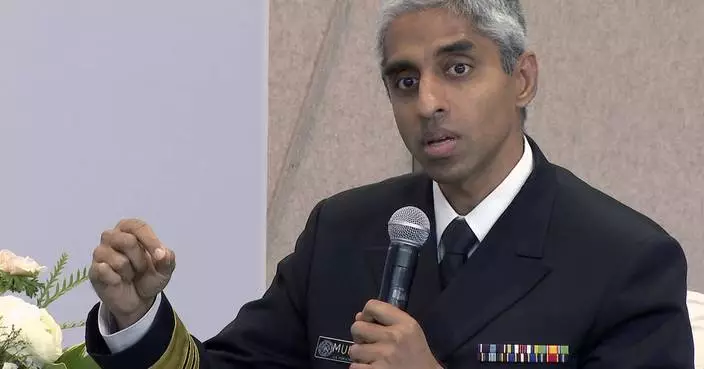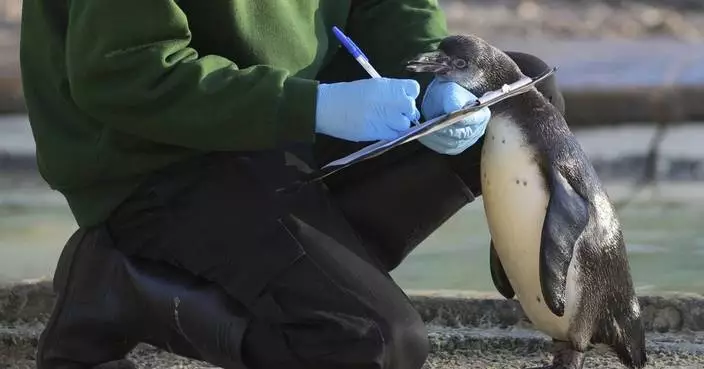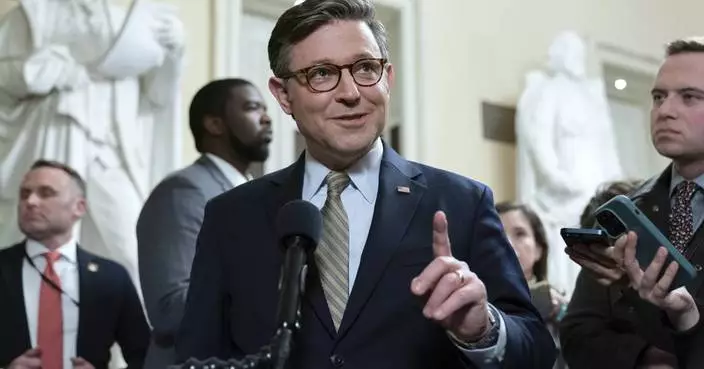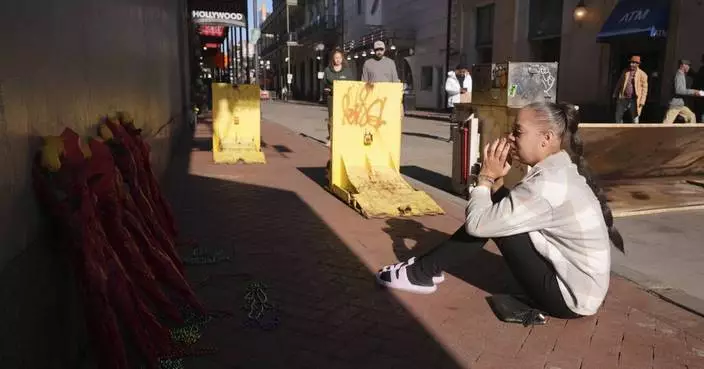Actor Blake Lively sued "It Ends With Us” director Justin Baldoni and several others tied to the romantic drama on Tuesday, alleging harassment and a coordinated campaign to attack her reputation for coming forward about her treatment on the set.
The federal lawsuit was filed in New York just hours after Baldoni and many of the other defendants in Lively's suit sued The New York Times for libel for its story on her allegations, saying the newspaper and the star were the ones conducting a coordinated smear campaign.
The lawsuits are major developments in a story emerging from the surprise hit film that has already made major waves in Hollywood and led to discussions of the treatment of female actors both on sets and in media.
Lively's suit said that Baldoni, the film's production company Wayfarer Studios and others engaged in “a carefully crafted, coordinated, and resourced retaliatory scheme to silence her, and others, from speaking out.”
She accuses Baldoni and the studio of embarking on a “multi-tiered plan” to damage her reputation following a meeting in which she and her husband, actor Ryan Reynolds, addressed “repeated sexual harassment and other disturbing behavior” by Baldoni and a producer Jamey Heath, who is also named in both lawsuits.
The plan, the suit said, included a proposal to plant theories on online message boards, engineer a social media campaign and place news stories critical of Lively.
The alleged mistreatment on set included comments from Baldoni on the bodies of Lively and other women on the set. And the suit says Baldoni and Heath “discussed their personal sexual experiences and previous porn addiction, and tried to pressure Ms. Lively to reveal details about her intimate life.”
Baldoni's attorney Bryan Freedman did not immediately respond to a request for comment on Lively's lawsuit. But he previously called the same allegations “completely false, outrageous and intentionally salacious.”
Lively's lawsuit comes the same day as the libel lawsuit filed in Los Angeles Superior Court by Baldoni and others against the Times seeking at least $250 million. The Times stood by its reporting and said it plans to “vigorously defend” against the lawsuit.
Others who are defendants in Lively's suit and plaintiffs in the libel suit include Wayfarer and crisis communications expert Melissa Nathan, whose text message was quoted in the headline of the Dec. 21 Times story: “‘We Can Bury Anyone’: Inside a Hollywood Smear Machine.”
Written by Megan Twohey, Mike McIntire and Julie Tate, the story was published just after Lively filed a legal complaint with the California Civil Rights Department, a predecessor to her new lawsuit.
The libel lawsuit says the newspaper “relied almost entirely on Lively’s unverified and self-serving narrative, lifting it nearly verbatim while disregarding an abundance of evidence that contradicted her claims and exposed her true motives. But the Times did not care.”
A spokesperson for the Times, Danielle Rhoades, said in a statement that “our story was meticulously and responsibly reported."
“It was based on a review of thousands of pages of original documents, including the text messages and emails that we quote accurately and at length in the article. To date, Wayfarer Studios, Mr. Baldoni, the other subjects of the article and their representatives have not pointed to a single error," the statement said.
But Baldoni's lawsuit says that “If the Times truly reviewed the thousands of private communications it claimed to have obtained, its reporters would have seen incontrovertible evidence that it was Lively, not Plaintiffs, who engaged in a calculated smear campaign.”
Lively is not a defendant in the libel lawsuit. Her lawyers said in a statement that “Nothing in this lawsuit changes anything about the claims advanced in Ms. Lively’s California Civil Rights Department Complaint, nor her federal complaint, filed earlier today."
The romantic drama “It Ends With Us,” an adaptation of Colleen Hoover’s bestselling 2016 novel, was released in August, exceeding box office expectations with a $50 million debut. But the movie’s release was shrouded by speculation over discord between Lively and Baldoni. Baldoni took a backseat in promoting the film while Lively took centerstage along with Reynolds, who was on the press circuit for “Deadpool & Wolverine” at the same time.
Lively came to fame through the 2005 film “The Sisterhood of the Traveling Pants,” and bolstered her stardom on the TV series “Gossip Girl” from 2007 to 2012. She has since starred in films including “The Town” and “The Shallows.”
Baldoni starred in the TV comedy “Jane the Virgin,” directed the 2019 film “Five Feet Apart” and wrote “Man Enough,” a book pushing back against traditional notions of masculinity. He responded to concerns that “It Ends With Us” romanticized domestic violence, telling the AP at the time that critics were “absolutely entitled to that opinion.”
He was dropped by his agency, WME, immediately after Lively filed her complaint and the Times published its story. The agency represents both Lively and Reynolds.
Baldoni's attorney, Freedman, said in a statement on the libel suit that “the New York Times cowered to the wants and whims of two powerful ‘untouchable’ Hollywood elites.”
“In doing so, they pre-determined the outcome of their story, and aided and abetted their own devastating PR smear campaign designed to revitalize Lively’s self-induced floundering public image and counter the organic groundswell of criticism amongst the online public," he added. "The irony is rich.”
Associated Press writer Ryan Pearson contributed to this story.

FILE - Blake Lively poses for photographers upon arrival at the UK Gala Screening for the film 'It 'Ends With Us' on Thursday, Aug, 8, 2024 in London. (Photo by Scott A Garfitt/Invision/AP, File)

FILE - Justin Baldoni attends the world premiere of "It Ends with Us" at AMC Lincoln Square on Tuesday, Aug. 6, 2024, in New York. (Photo by Evan Agostini/Invision/AP, File)
WASHINGTON (AP) — President Joe Biden has blocked the nearly $15 billion proposed deal for Nippon Steel of Japan to purchase Pittsburgh-based U.S. Steel — affirming his earlier vow on the presidential campaign trail to prevent the acquisition of Steeltown USA’s most storied steel company.
The proposed deal kicked up an election year political maelstrom across America’s industrial heartland and blocking it drew a threat of litigation from Nippon Steel.
“We need major U.S. companies representing the major share of US steelmaking capacity to keep leading the fight on behalf of America’s national interests,” Biden said in a Friday morning statement.
Nippon Steel and U.S. Steel blasted the decision, saying in a joint statement that Biden's blocking the deal “reflects a clear violation of due process and the law” in a process it said was “manipulated” to advance Biden’s political agenda.
It also insisted that Biden cited no credible evidence of the deal presenting a national security problem and suggested it will sue, saying “we are left with no choice but to take all appropriate action to protect our legal rights.”
Biden's decision comes after the Committee on Foreign Investment in the United States, known as CFIUS, failed to reach consensus on the possible national security risks of the deal last month, and sent a long-awaited report on the merger to Biden. He had 15 days to reach a final decision.
The committee, chaired by Treasury Secretary Janet Yellen and made up of other Cabinet members, can recommend that the president block a transaction, and federal law gives the president that power.
A U.S. official familiar with the matter, who spoke on condition of anonymity, told The Associated Press last month that some federal agencies represented on the panel were skeptical that allowing a Japanese company to buy an American-owned steelmaker would create national security risks.
The decision comes just weeks before the Democratic president is set to leave office and could damage relations between the U.S. and Japan, which is America’s biggest ally in Asia and its largest foreign holder of U.S. debt.
In their statement, the two steel companies said it's “shocking — and deeply troubling” that the U.S. would reject a transaction that advances U.S. interests and “treat an ally like Japan in this way.”
“Unfortunately, it sends a chilling message to any company based in a U.S. allied country contemplating significant investment in the United States,” the companies said.
Biden previously came out against the deal last March during the presidential campaign — and was backed by the United Steelworkers, concerned over whether the company would honor existing labor agreements or slash jobs, as well as over the firm’s financial transparency.
“It is important that we maintain strong American steel companies powered by American steel workers,” Biden said in a March statement, while he was still seeking reelection to the presidency before dropping out of the race. “U.S. Steel has been an iconic American steel company for more than a century, and it is vital for it to remain an American steel company that is domestically owned and operated.”
President-elect Donald Trump has also opposed the acquisition and vowed in December on his Truth Social platform to block the deal and to use tax incentives and tariffs to grow the company.
On Friday, Steelworkers President David McCall said the union is grateful for Biden's move to block the sale and called it the “right move for our members and our national security.”
McCall had long questioned Nippon Steel's status as an honest broker for U.S. national trade interests and reiterated that Friday, saying in a statement that “Nippon has proven itself to be a serial trade cheater."
“Allowing it to purchase U.S. Steel would have offered it the opportunity to further destabilize our trade system from within and in the process, compromise our ability to meet our own national security and critical infrastructure needs,” McCall said.
McCall insisted that U.S. Steel has the financial wherewithal to make the company strong and resilient.
For its part, Nippon Steel had said it is best positioned to help American steel compete in an industry dominated by the Chinese and to invest billions in United Steelworkers-represented facilities, including the company's aging blast furnaces.
It pledged to protect U.S. Steel in trade matters, and promised not to import steel slabs that would compete with the blast furnaces.
Nippon Steel announced in December 2023 that it planned to buy the steel producer for $14.9 billion in cash and debt, and committed to keep the U.S. Steel name and Pittsburgh headquarters. Despite that, its proposal raised concerns about what the transaction could mean for unionized workers, supply chains and U.S. national security.
The announcement came during a tide of renewed political support for rebuilding America’s manufacturing sector and followed a long stretch of protectionist U.S. tariffs that analysts say have helped reinvigorate domestic steel.
Nippon Steel waged a public relations campaign to win over supporters, even offering $5,000 in closing bonuses to U.S. Steel employees, a nearly $100 million expense.
A growing number of conservatives and business groups like the U.S. Chamber had publicly backed the deal, as Nippon Steel began to win over some Steelworkers union members and mayors in areas near its blast furnaces in Pennsylvania and Indiana.
Levy reported from Harrisburg, Pennsylvania.
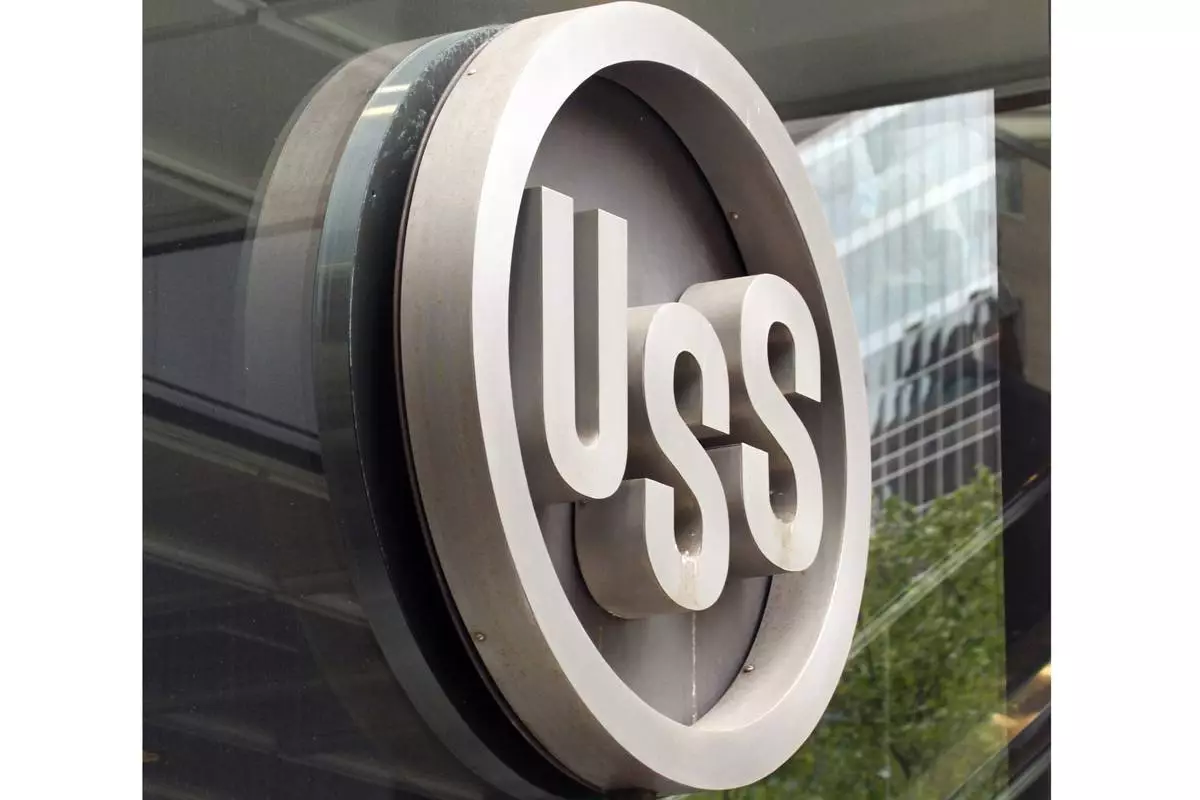
FILE - The United States Steel logo is pictured outside the headquarters building in downtown Pittsburgh, April 26, 2010. (AP Photo/Gene J. Puskar, File)

FILE - This is a portion of US Steel's Edgar Thomson Works in Braddock, Pa., on Sunday, Apr., 28, 2024. (AP Photo/Gene J. Puskar, File)
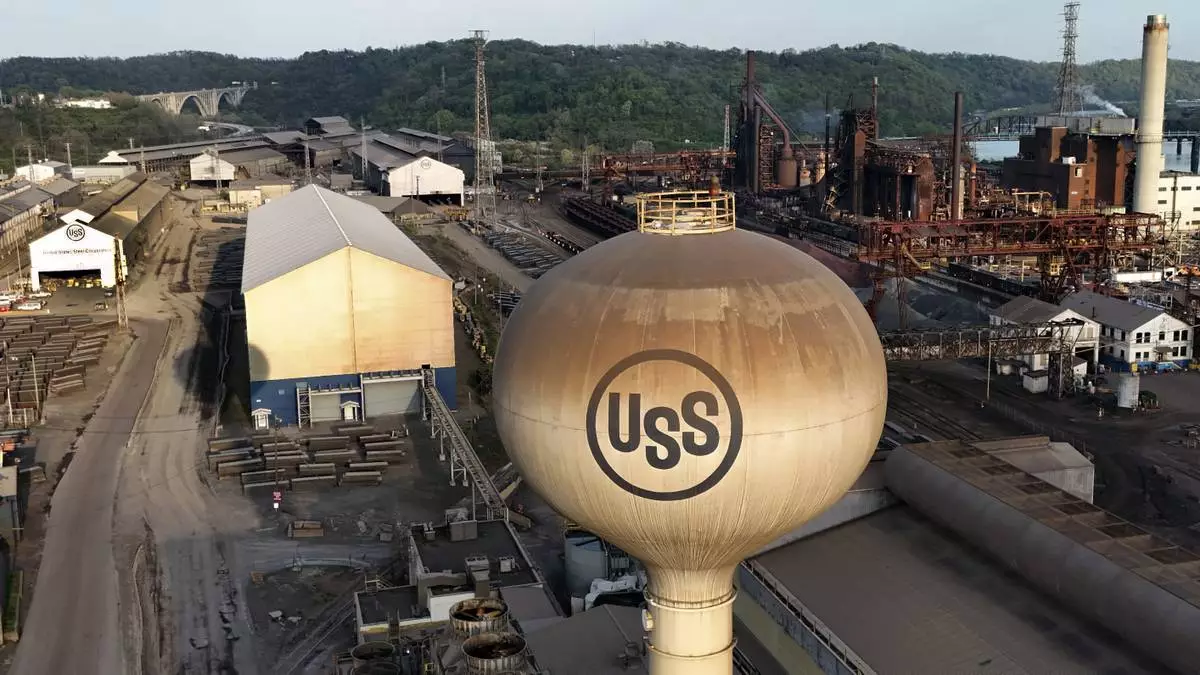
FILE - This is a portion of US Steel's Edgar Thomson Works in Braddock, Pa., on Sunday, Apr., 28, 2024. (AP Photo/Gene J. Puskar, File)
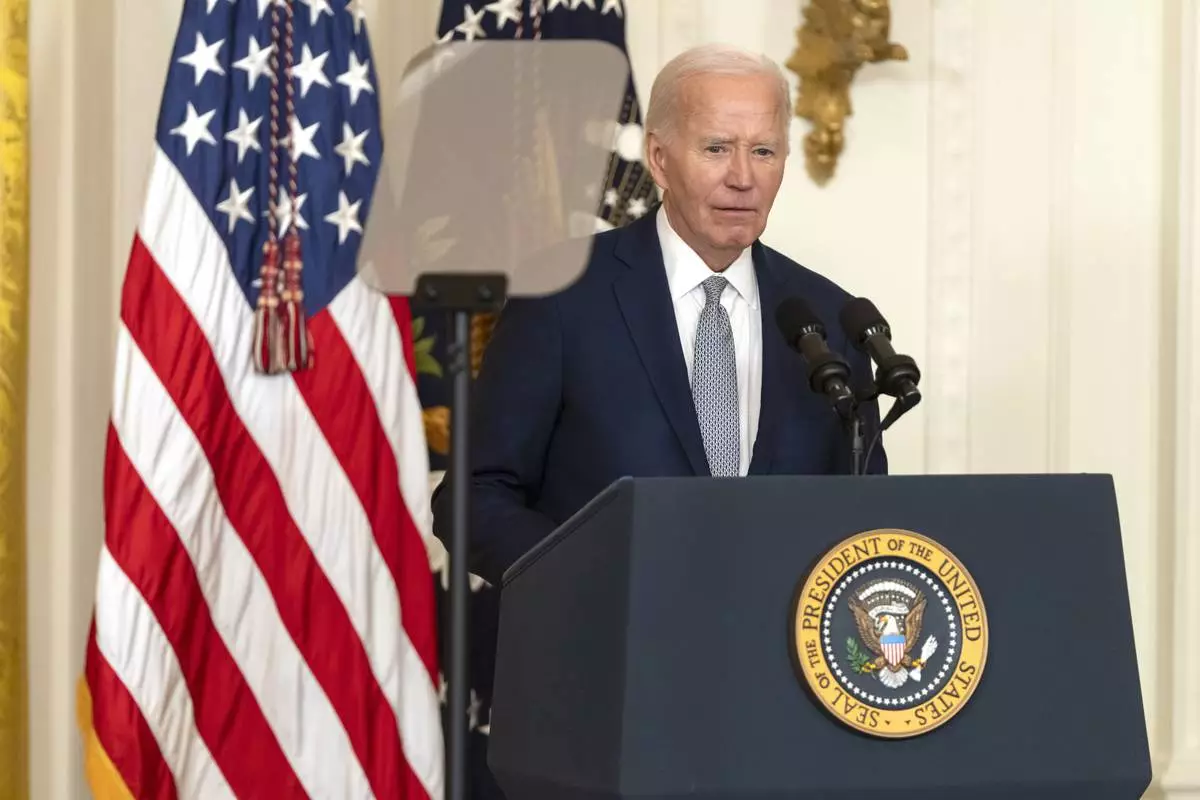
President Joe Biden speaks at an event to award the Presidential Citizens Medal to recipients in the East Room at the White House, Thursday, Jan. 2, 2025, in Washington. (AP Photo/Mark Schiefelbein)




